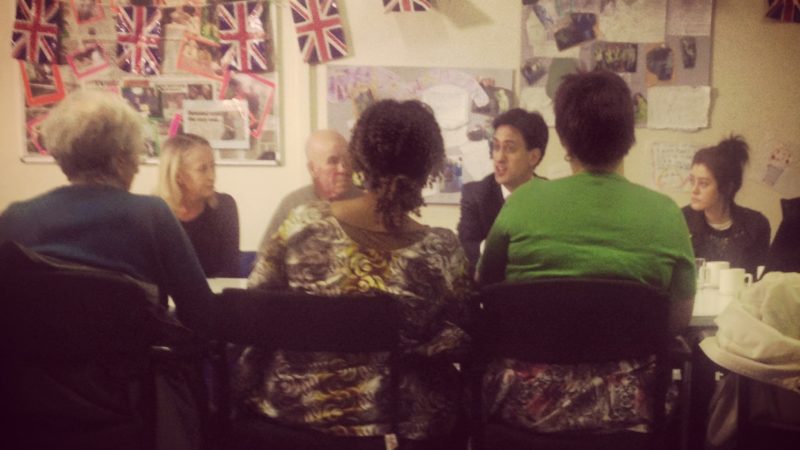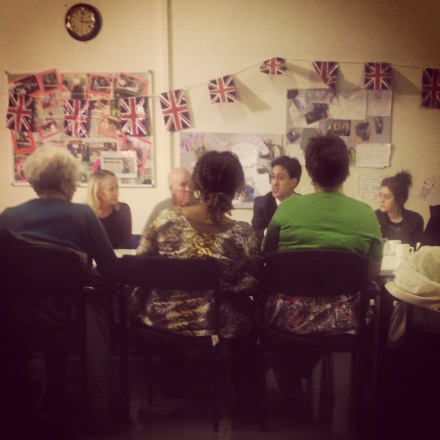

“It’s the NHS,” Liz McInnes tells me, when I ask her what her priority would be if she became an MP. “We’ve got to do something about making sure people can see their GP.”
Liz has worked in the NHS for 33 years, and it is clearly the issue that she cares about most. I meet her in a community centre, in the wonderfully named Back O’th Moss part of Heywood (it warmly reminds me of the Hole I’th Wall pub where I used to sneak off to between classes at college).
As Labour’s candidate for Thursday’s by-election in Heywood and Middleton, she was there with Ed Miliband to talk to local people about their experiences of using the health service. It is at times like this that you get the feeling that many of Miliband’s flagship policies are, like his speeches, based on conversations he has with people. With this group, a little more organic than a focus group, but not quite a public meeting, the things that came up time and again were getting GP appointments and A&E waiting times – the kind of things that Labour have been pushing hard for a while now.
Using the NHS as focal point is clearly working. Yesterday, UKIP even had an advertising van going around the constituency promoting an NHS message.
I think this shows us a couple of things. Firstly, that UKIP are trying to broaden their appeal to Labour voters – something we need to be very aware of. But, I think, it also tells us that they’ve written this by-election off. If they were gunning for the win, they would be going hard on immigration, a topic that the public trust UKIP on more than us. By switching focus to Labour’s ground, the subject that Labour wants this campaign to be judged on, it tells me that they are using this as first step in a longer-term strategy to take Labour votes. With a second-placed finish here pretty much nailed on, they can afford to move out of their comfort zone without it being seen as a disaster.
But why can UKIP be confident of a decent showing? What is their appeal here?
Where UKIP does well in Labour areas it seems to be because of a loss of identity, which cannot be singularly traced to immigration – immigration has always been a part of these towns – but because of a loss of purpose in many towns. Both Middleton and Heywood were mill towns, but with the fading of industries, many of these towns face an unspoken existential crisis.
These two towns have both seen smaller levels of immigration in recent years compared to the Borough of Rochdale as a whole, which seems to reaffirm research that shows UKIP are more successful in constituencies close to places with higher levels of immigration than in those places themselves.
Then there is the ‘left behind’ demographic. When I arrived, instead of going straight out on the campaign trail, I went to a local charity in Middleton. Officially opened by former MP Jim Dobbin in 2010, they help jobseekers navigate the torrid Universal Jobmatch website. Many of the people there go because they can’t use a computer, but have to log on in order to receive their benefits – and rather than help them with the process, the Job Centre sends them straight here. It’s a huge state reliance on the voluntary sector, and makes you wonder what people would do if there wasn’t a charity there, faced alone with a system that seems hell-bent on not helping them.
Ensuring that local services work so that people don’t feel cut off from the system will be a big task for whoever becomes the next MP.
At the end of our chat, I asked McInnes whether she would win on Thursday. A big smile broke, unscripted, across her face:
“Yes.”
If a candidate does that two days before polling, it’s usually a good sign.




More from LabourList
Antonia Romeo appointed to lead civil service as new Cabinet Secretary
‘If Labour is serious about upskilling Britain, it must mobilise local businesses’
Stella Tsantekidou column: ‘What are we to make of the Labour Together scandal?’